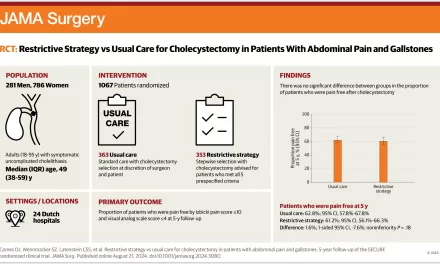April 8, 2024
A groundbreaking trial investigating the efficacy of chelation therapy in reducing cardiovascular events among post-myocardial infarction (MI) patients with diabetes has revealed unexpected results. Contrary to earlier findings, chelation therapy did not demonstrate a reduction in cardiovascular events in this patient population, according to the TACT2 trial presented at the American College of Cardiology’s Annual Scientific Session.
The TACT2 trial, led by Chief Investigator Dr. Gervasio Lamas from Mount Sinai Medical Center in Miami, Florida, aimed to replicate the outcomes of the previous TACT trial, which had shown promising results for chelation therapy using edetate disodium (EDTA). However, the latest trial failed to confirm these findings.
Dr. Lamas suggested that one possible explanation for the discrepancy between the two trials could be the significantly lower levels of lead in the TACT2 trial participants. He highlighted the substantial decrease in blood lead levels in the United States and Canada over the past few decades due to improved public health interventions, such as the elimination of leaded gasoline.
According to Dr. Lamas, blood lead levels in the US averaged 17 mcg/L from 2003 to 2010 during the first TACT trial. However, by the time of the TACT2 trial, conducted from 2015 to 2020, blood lead levels had dropped to an average of 10 mcg/L. Additionally, the TACT2 population exhibited even lower baseline blood lead levels at 9 mcg/L.
“These findings suggest that the therapeutic impact of further reducing blood lead levels may have been limited,” Dr. Lamas explained.
The TACT2 trial randomized 1000 post-MI patients with diabetes to receive either 40 weekly EDTA or placebo infusions. Despite a 60% reduction in blood lead levels observed with EDTA therapy, no significant clinical benefit was observed in terms of primary or secondary endpoints or all-cause mortality.
The primary endpoint, which included the cumulative incidence of major cardiovascular events, did not show a significant difference between the EDTA and placebo groups. Furthermore, subgroup analyses did not reveal any notable variations in outcomes.
Dr. Lamas emphasized that while the TACT2 trial did not support the use of EDTA chelation therapy for reducing cardiovascular risk in stable post-MI patients with diabetes in North America, the findings may still have relevance for regions where lead exposure remains a significant health concern.
“Our method of treatment was effective at reducing lead, even in patients starting with low lead levels, and it was safe,” Dr. Lamas concluded. “This study may be more relevant to those areas of the world where lead exposure is more common.”
The TACT2 study was funded by the US National Institutes of Health, and Dr. Lamas reported no disclosures.












